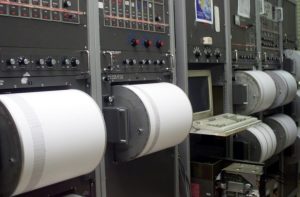Capital Maritime & Trading Corp. Founder and Chairman Evangelos Marinakis presented, on Monday, his group’s vision for an ocean-going shipping industry that’s more environmentally friendly and a trail-blazer in the use of alternate fuels.
The prominent Greek ship-owner referred to a “real commitment” on the part of Capital and optimism that “these decisions will work out, and not only for the environment but also economically; that we have made a wise decision.”
Marinakis spoke at the Capital Link Forum’s Maritime Leaders’ Summit, entitled “Dashing Ahead – Leadership in Action”, and specifically during a panel discussion on the theme of “LNG, Shipping & the New Energy Landscape”.
The summit, held at the southeast Athens seaside resort of Vouliagmeni, kicked-off on Monday, in tandem with the world’s most prestigious shipping exhibition, the biannual Posidonia, also held in the Greek capital. Posidonia 2024 will continue until Thursday at the Metropolitan Expo venue adjacent to the Athens International Airport (AIA).
In opening the panel discussion, ABS chairman and CEO Christopher Wiernicki, the moderator, told an audience packed with shipowners that LNG is the lowest carbon fuel currently available in a shipping of scale, emitting about 23% less greenhouse gas emissions compared to very low sulphur fuels.
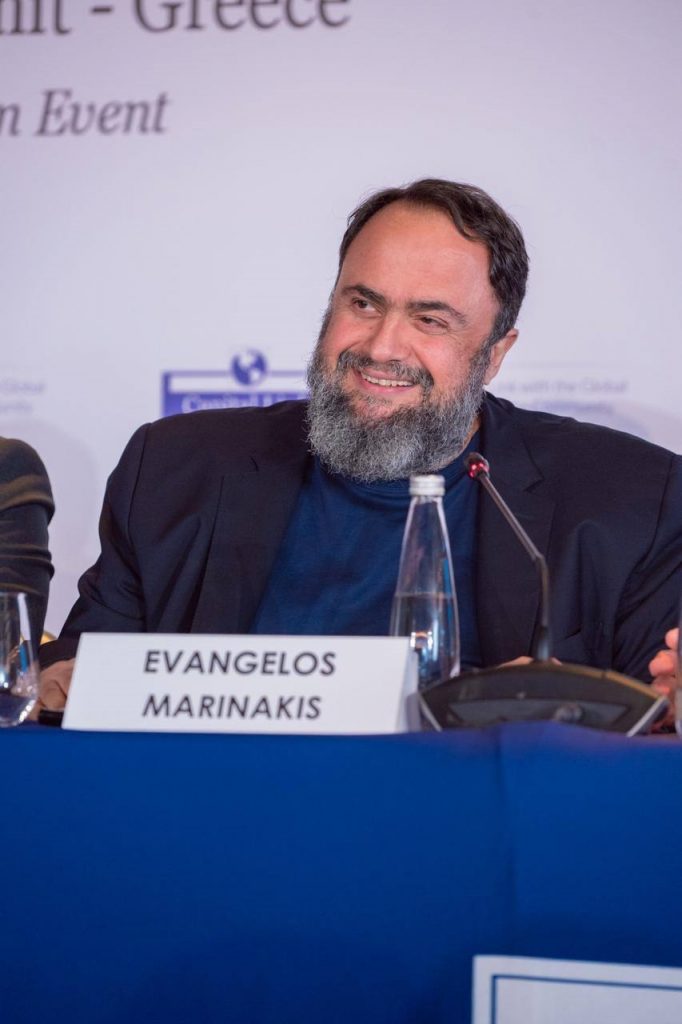
Capital Maritime & Trading Corp. Founder and Chairman Evangelos Marinakis.
In describing his strategy, Marinakis added that “as far as LNG is concerned, we made our decision and we are going ahead with a number of new buildings: dual fuel vessels with LNG, Aframaxes, LR2s, Suezmaxes, VLCCs and of course a number of LNG vessels that are under construction, and in the water with new technologies. For the next 20 years, LNG has the infrastructure and has been tested.”
Marinakis was joined during the panel discussion by Dynacom Tankers Management and Dynagas Ltd. Founder George Prokopiou, J.P. Morgan Asset Management Managing Director & Group Head Andrian Dacy, Capt. Abdulkareem Al Masabi, the CEO of ADNOC Logistics & Services, along with TotalEnergies Senior VP for shipping and trading Jerome Cousin.
In further comments, Marinakis expressed a view that “of course, it is cleaner and at the end of the day, we think that -as markets will stabilize after the war in Russia and Ukraine- it will be priced very competitively, so at the same time we can help the environment and CO2 emissions reduction and we can take advantage of a lower price and combine both benefits.”
Conversely, he reminded that this strategy entails both a cost and risk that his shipping group is willing to take, as other forces appear hesitant to assist by assuming a portion of the cost for more environmentally friendly technologies.
“What is very important to mention is that all these decisions and all this risk, we take ourselves. Because, irrespective of all these announcements for the environment and what we need to know in order to improve the conditions and the reduction of emissions, the reality is that oil majors, with all due respect, haven’t shown any real appetite to pay a premium for these dual fuel vessels or the vessels that are more environmentally friendly,” he underlined, while immediately adding:
“I think that whoever is cheaper is getting the business. We can see a number of fixtures that have taken place within this year and the year before for deliveries in 2025-2026 with conventional vessels at very competitive prices, so, as far as the oil majors are concerned, a cheap fixture is what still makes sense for them. So, we take this risk because we feel that we are committed [to the reduction of emissions] and of course, in the near future the market will dictate the premiums.”
In detailing Capital Maritime & Trading Corp.’s emphasis on state-of-the-art shipbuilding and alternative fuels, he stressed that “I think that what excites us more is a bit of everything, that’s why we have done dual fuel LPGs, dual fuel LNG vessels and this goes in nearly all sizes, VLCCs, Suezmaxes, Aframaxes, and the same applies for LPG vessels, from smaller ships from 22,000, 40-45,000 up to 93,000 cbm, we have bet on ammonia engines for the 93,000 cbm but, let’s leave ammonia on the side.”
Earlier, he noted that “we have enjoyed good markets in the last years and that makes our investment and decisions more comfortable to pay this premium and take the risk. This is a real commitment from our side and I hope that for the years to come these decisions will work out, not only for the environment but also economically, it will be a wise decision.”
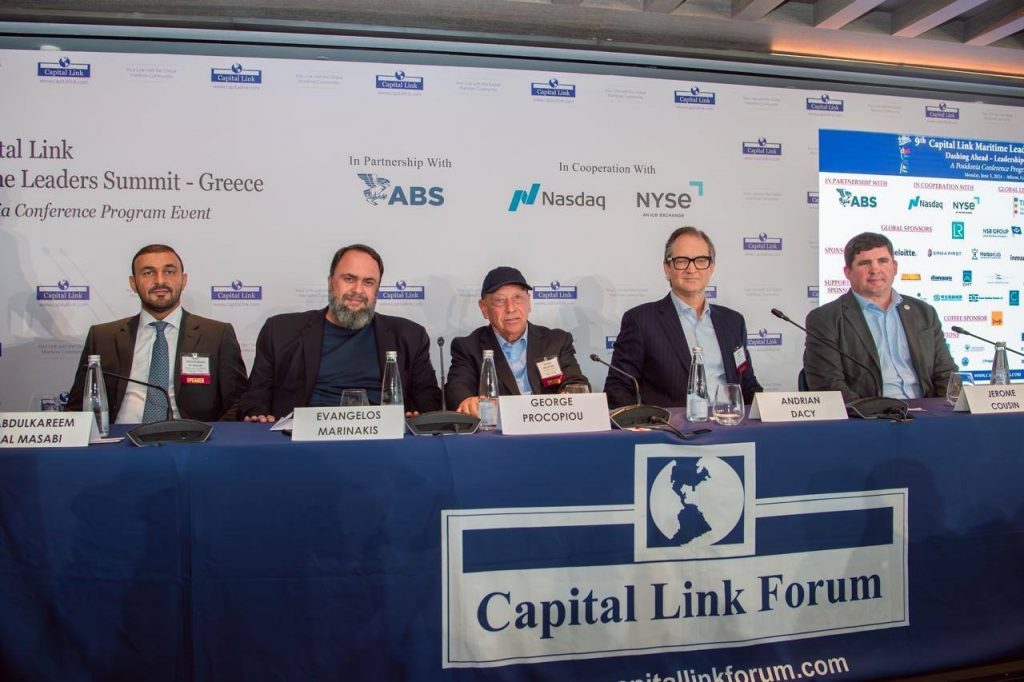
From left: Capt. Abdulkareem Al Masabi, the CEO of ADNOC Logistics & Services; Capital Maritime & Trading Corp. Founder and Chairman Evangelos Marinakis; Dynacom Tankers Management and Dynagas Ltd. Founder George Prokopiou; J.P. Morgan Asset Management Managing Director & Group Head Andrian Dacy and TotalEnergies Senior VP for shipping and trading Jerome Cousin.
In showing a current preference for LNG in the coming period, Marinakis clarified that “…Right now, we concentrate on LNG. We feel that, as we said, for the next 10 to 20 years we’ll go forward with LNG. The infrastructure took a long time to be built and even today bunkering an LNG vessel hasn’t been as easy as we think. We see that you have a ship, an LNG bunkering vessel that will only do two or three, or four bunkering operations within a month, which of course has to change and be able to do more, and so it would be cheaper, more competitive in operation. I’m saying that building infrastructure, all this takes a very long time at a significant expense and you need to subsidize it for the first years of operation. So, if we are to have a serious discussion about other alternative fuels, you can imagine that we are still at a very early stage and will take a very long time,” he said, adding:
“So, answering your questions, I think that we want to be in all sizes and, as I said there is a premium let’s say between 15 to 20-25 million per vessel and if you extend this to bigger vessels with bigger engines, it can be higher. We want to be in all market sectors and as I said this is a premium that we pay with a long-term horizon for the next 10-20 years so we think that down the line we’ll have the chance to capitalize on it.”
Dialogue with George Prokopiou
In a brief exchange at the end of the discussion with fellow panelist George Prokopiou, which drew the audience’s applause, the latter referred to his company’s ambitious new shipbuilding program and world-wide shipyard capacity, stating that “…All of these discussions remind me of the same, the same theme. In 2008, the growing concern was that there were not enough shipyards to cope with the demand. Suddenly, due to events completely outside shipping, we had a crisis for 12 years. So we are approaching the new cycle. When we are talking that the capacity of the shipyards is not enough, and so on. Gentlemen, we are ready for a new start again from point zero. This is my comment.”
Evangelos Marinakis: “So, that’s a challenge!”
GP: “No, I believe, Vangelis, nobody can be predicting the future and we are all romantic. And it’s me saying that. I have ordered 88 new buildings at seven billion dollars cost, but I have done it. So from now on I am saying…”
EM: “No more, you say.”
(applause)
EM: “So, that means we have invested similar amounts, so no more, you say.”
GP: “Definitely, no more!”
In conclusion, Marinakis said that “…I think the challenge for us is all this excessive investment in alternative fuels. To see that in the near future we feel that when all the deliveries will take place, we’ll enjoy a healthy market and together with a healthy market, a healthy environment for everybody. I think this is a big challenge and we are ready and we are one of the first to go for it.”
George Prokopiou on Slow Steaming
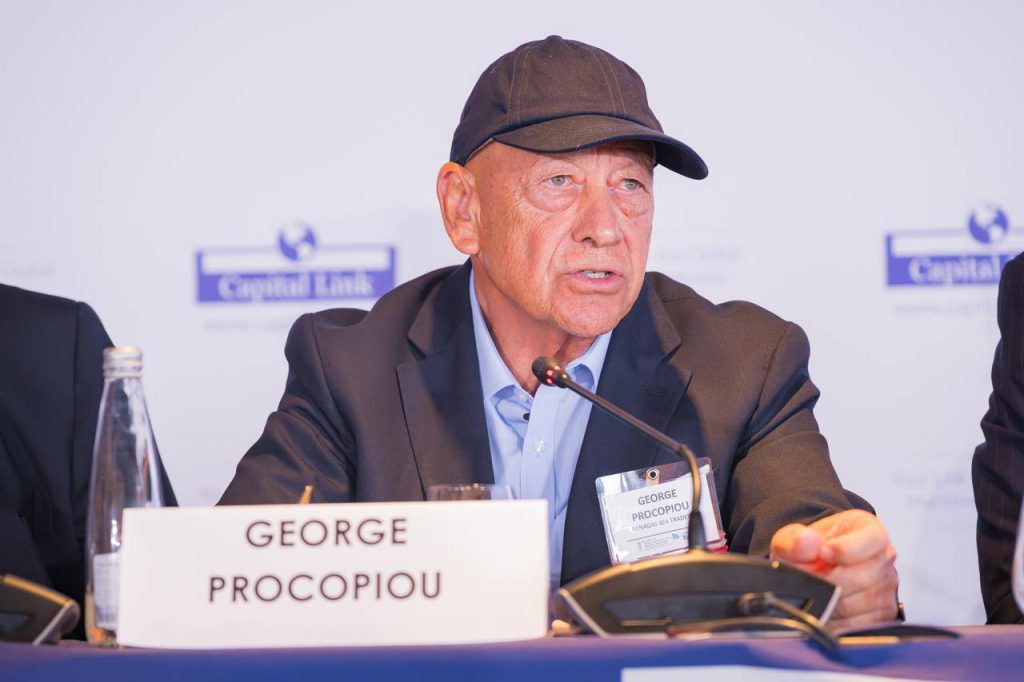
Dynacom Tankers Management and Dynagas Ltd. Founder George Prokopiou
Earlier, Prokopiou reminded that “… transportation by ships is the least, polluting, method. And that’s where it the most efficient. And that’s why 80% or even more of the global trade. As I said many times, is with ships. We never when we speak about alternative, means of transportation, we are never thinking about the pollution that is created to build the roads or to make the tires that the, the transportation, the trucks and so on.”
The Greek shipowner and businessman stressed that the “… more we reduce the fuel, the most we reduce pollution. Pollution is proportionate to the amount of fuel that you burn and the type of fuel. There are alternatives. And, LNG is the best in my opinion. It took 40 years to have the infrastructure and the means to transport it, but is very good for the LNG carriers where you have all the other features.”
Earlier, in presenting the panel discussion on the theme of “LNG, Shipping & the New Energy Landscape”, Wiernicki highlighted how important LNG is, stating that “…it is a practical transition fuel, and you will hear that it is also a fuel in transition. And it has in fact, already addressed the three boundary conditions that we talked about safety, availability, scalability and infrastructure…”
On his part, George Prokopiou was asked and directly answered a question referring to “slow steaming”, a practice of lowering a ship’s speed in order to reduce emissions and conserve fuel, underling that it was always the best option, “it was always there…If seven years ago they would say that we reduce the speed for two knots, (we) would have saved millions of tons of CO2 emissions over all these years.”
“So slow steaming. Which now it is with another name because many great egos are around. It is. It is named horsepower reduction. Yeah. They changed the name. You know, it was very, very odd to use the same name. So, it is and will be always […] So, yes, I insist this is the best. And on the ship the best solution. And on the ships that we are building, we are calculating them with 14 and they have knots. So we have a margin of two knots which will make them 50, at least 50% more efficient, maybe 60% more efficient on the previous generation of ships. So yes, this is the remedy. And the sooner we understand and implement it, the better would be great.”
He went on to say that the family-run company he founded today has 130 ships in the water, while it has decided to invest in new builds that use conventional fuels and the best-available technology to reduce their environment “footprint”.
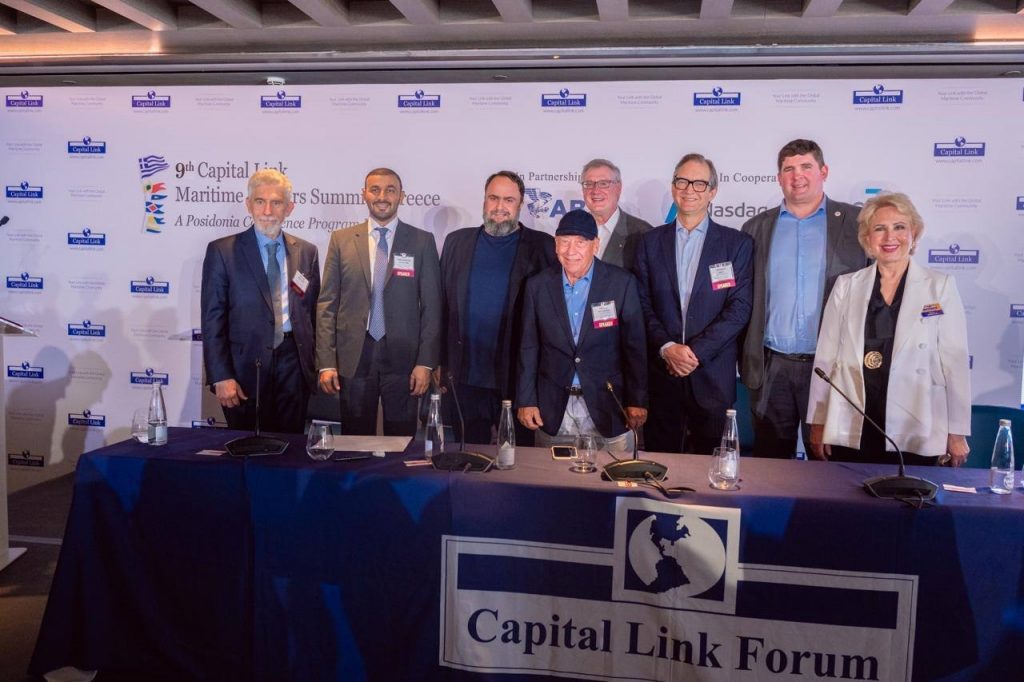
From left: Capital Link Founder CEO Nicolas Bornozis; Capt. Abdulkareem Al Masabi, the CEO of ADNOC Logistics & Services; Capital Maritime & Trading Corp. Founder and Chairman Evangelos Marinakis; Dynacom Tankers Management and Dynagas Ltd. Founder George Prokopiou; ABS chairman and CEO Christopher Wiernicki, the moderator; J.P. Morgan Asset Management Managing Director & Group Head Andrian Dacy; TotalEnergies Senior VP for shipping and trading Jerome Cousin and Capital Link Managing Director Olga Bornozi.
Prokopiou also mentioned that LNG will be available for the coming decades, while he didn’t mince his words in referring to “hypocrisy” over the fact that shipping is under such pressure when the industry’s “footprint” is so small compared with other industries.
JP Morgan’s Andy Dacy
Along those same lines, Andy Dacy of J.P. Morgan, in looking to the future of shipping and the debate over alternative fuels, emphasized that people often overlook the fact that there are industries “that are certainly polluting a lot more than we are. The livestock industry, for example, it represents 17% of global pollution. Certainly, road transportation in 12 to 13% range. However, we don’t have any voting constituents.” As a result he said, the sector tends to be a “punching bag” for regulatory authorities.
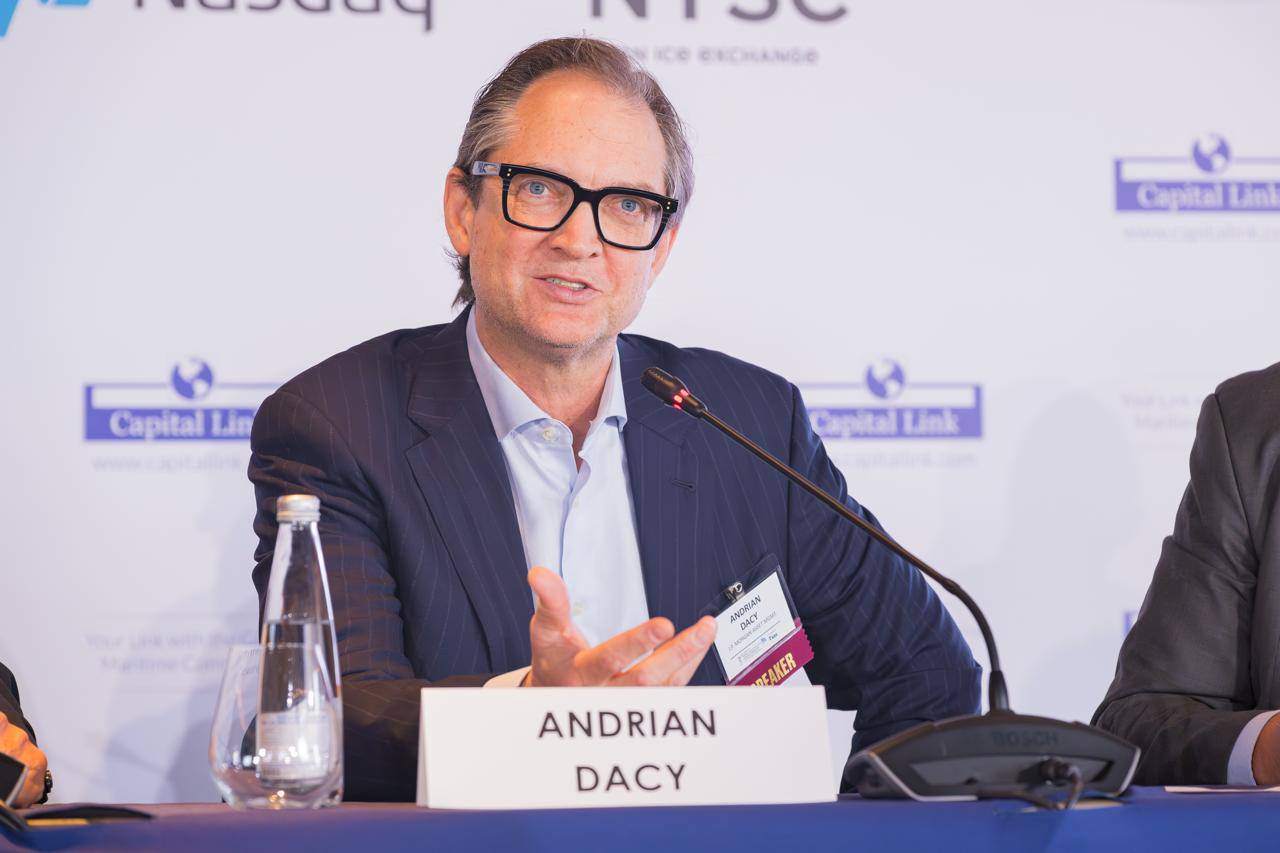
J.P. Morgan Asset Management Managing Director & Group Head Andrian Dacy
“What we often overlook is the fact that there’s other types of industries out there that are certainly polluting a lot more than we are. Livestock industry, for example, represents 17% of global pollution. Certainly, road transportation is. And that 12 to 13% range. But however, we don’t have any voting constituents. We don’t represent the nation of any sort. So as a result, we become the punching bag, I would say, of regulators.”
His statement:
“…I think the big issue when it comes to the decarbonization strategy, and let me talk about that more broadly, is that we as shipowners can do everything that we’ve talked about. We can go and we can order LNG powered ships, we can order green methanol powered ships, we can order ammonia powered ships. We can order. Well, hydrogen is probably still some ways off.
“But, as Chris mentioned, and perhaps the underlying theme of this panel is the safety, availability and scalability of all these alternative fuels. And I think it’s no mystery that these fuels are certainly not available. Some of them are not safe. And the scalability is an insignificant question.
“I think, you know, most recently with the development of AI again, I can [say] there’s no mystery there. But the amount of power that AI consumes, as you do an AI search is often eight, nine, ten times as much power as a traditional Google search.
“So if you think about the incremental energy requirements that are needed globally, it’s not going to shipping, it’s not going to be going to, you know, producing alternative fuels. It unfortunately or fortunately it will be going into the grid to power just typical electricity needs, but also all these incremental AI and technical needs that are developing.
“And so I think the industry is facing a conundrum where we’re being asked to meet all these requirements, which we will do our best to do. And I think a broad-based approach is the way to go. I don’t think anybody necessarily has a crystal ball as to what fuel is going to be available, and certainly at what price.
“And I think that makes it difficult to necessarily know what ship is the right ship to order. And I think probably everybody on this panel is certainly taking steps to do test cases. You know, for example, we’ve ordered green methanol ships, and I have my questions about whether or not that will be necessarily a pathway that will prove to be successful, and not because the ships themselves won’t do what they need to be done, but because the green button will be hard to achieve and hard to support and supply into the ships.
“Ammonia, I think, brings with it its own supply issues. LNG, I think is good, but as we all know, it’s not great. I think it’ll definitely be a transitional fuel that is available. It’s mostly safe. So I think as an intermediate step, the industry is going to be on that pathway.
“But when I think about some of the other scalability aspects, like with ammonia, roughly 175 million tons of ammonia are produced each year globally. About 80% of that goes into the fertilizer business. Another 20% goes into various forms of petrochemical production.
“There’s no incremental ammonia available today for the shipping industry. And if you think about the cost of adding 1 million tons of ammonia production per year, just traditionally it’s about $1 billion of investment to produce an incremental million tons of ammonia. If you’re going to produce it in a green way with alternative or renewable fuels or renewable energy through solar wind, that is something like 2 to $2.5 billion for incremental ammonia production.
“So I think there are significant hurdles that are not being driven by us as shipowners, but are being driven by the supply side of the equation. And most energy providers and producers don’t wake up in the morning and think about shipping first. They think about how are they going to put energy into the grid. So I think that that sets up the challenge now in terms of how you approach that.
“Our approach has been we have dual fuel, chemical tankers. We built them and delivered them prior to the pandemic, sort out the pandemic, the war in Russia. As soon as the war in Ukraine and Russia broke out, we didn’t burn a single molecule of LNG because the price went so high. So there’s all these issues that we have to consider about unknowable in the future that might impact the viability and pricing of alternative fuels.
“And I think the industry needs to, in some ways, group together to have a dialogue with regulators, because I think some of the goals, while they’re great and they’re aspirational, I think maybe. A be difficult to achieve. And if we don’t have that dialogue with regulators to help them understand the implications and the hurdles that are going to be faced as we go down this path, then I think we’re going to find ourselves in some really difficult situations when we get to those various milestones, whether in 2030, 2040 or 2050.”
TotalEnergies VP Cousin
TotalEnergies VP Cousin said his company began an energy transition long ago, based on two axes: oil and natural gas, where he said LNG belongs, being the first, and the second being power.
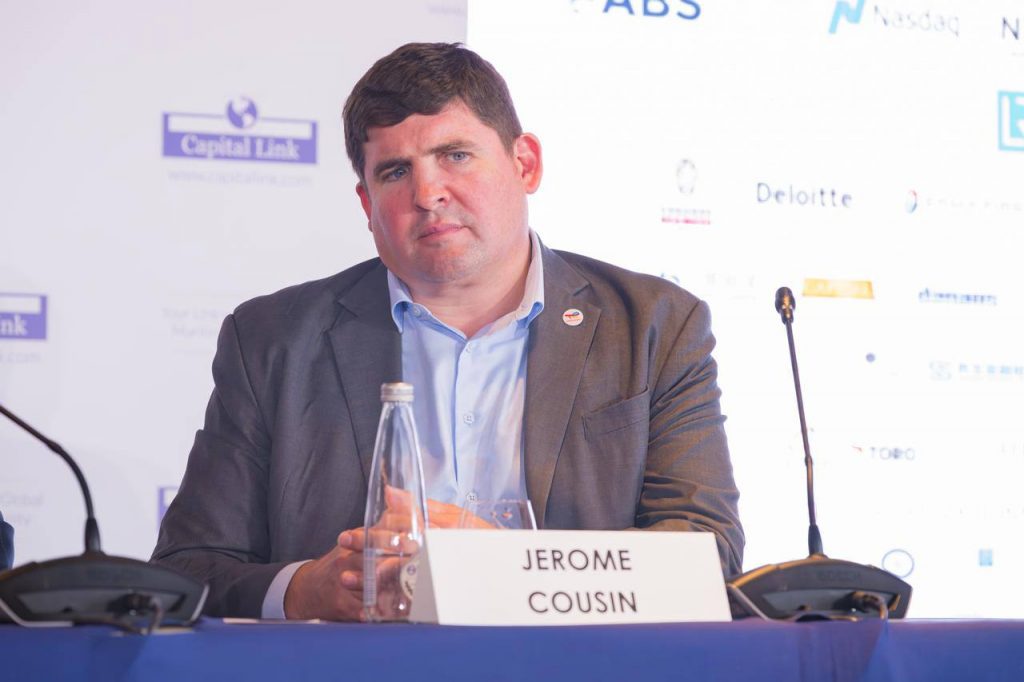
TotalEnergies Senior VP for shipping and trading Jerome Cousin
As far as availability and affordability are concerned, he “said we will continue to have a trend where LNG prices should come back to their historical, trading range. And we can, we should be able to count on the, you know, affordability of this, this fuel. It doesn’t solve all our issues, but at least it’s providing a short-term incentive to those who have made the, the investment and the commitment to invest in LNG, dual fuel vessels.
“And we can we should be able to count on the, you know, affordability of this, this fuel. It doesn’t solve all our issues, but at least it’s providing a short-term incentive to those who have made the, the investment and the commitment to invest in LNG, dual fuel vessels.
He earlier noted that “…TotalEnergies, as a multi-energy company has embarked, quite early on, in the, you know, energy transition journey, dwelling on two pillars. One is, oil and gas where we think, LNG belongs and the other one is, power. So as Andrea mentioned, we are investing a lot in order to provide all these, green electrons that the world is going to need in order to power not only the new application for AI, but also all the road transportation and the eventually new molecules, E molecules.
“But coming back from the more traditional, part of the business, we, I want to, to mention that the investment in the LNG production is quite significant, is quite big. For us, the outlook for the size of the LNG market is, is very, very big, [and keeps growing].
Abu Dhabi National Oil Co.’s Capt. Abdulkareem Al Masabi
Capt. Abdulkareem Al Masabi emphasized that LNG is certainly reliable and widely available as a transition fuel, while adding:
“You can always invest, but it comes with a premium right now…there’s no magic solution to transform the industry overnight”.
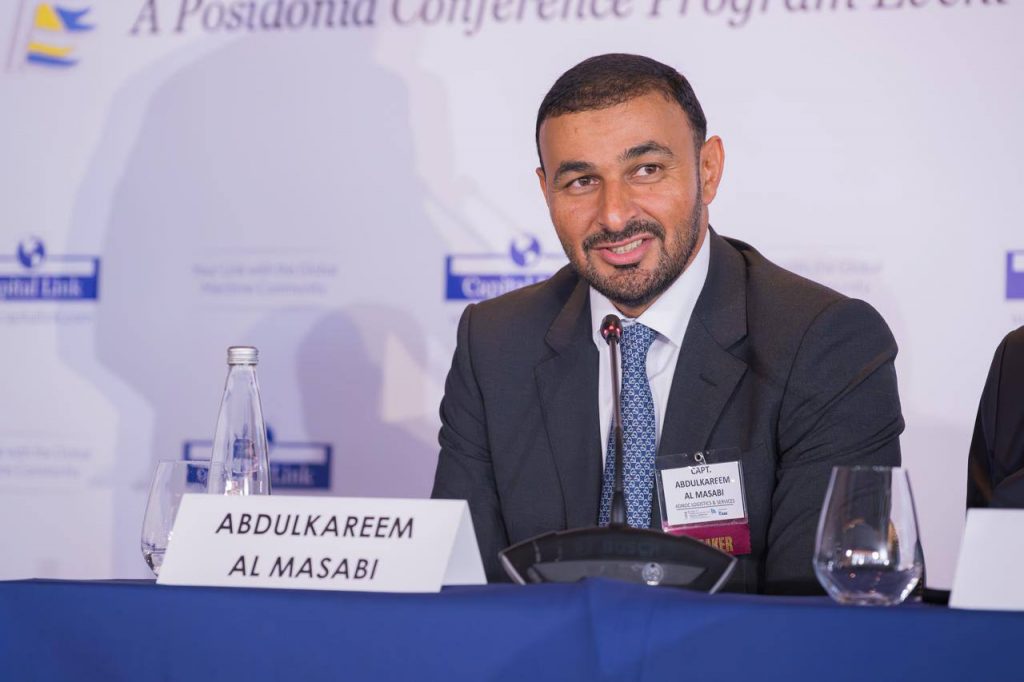
Capt. Abdulkareem Al Masabi, the CEO of ADNOC Logistics & Services
“When we look at Adnoc logistic and service, I mean, look on the shipping side today, I mean, we own and operate, close to 300 vessels. The majority of our, emissions do come from the oceangoing fleet, the big vessels basically. And in order to reduce the emissions. And of course, it’s all by embracing new technologies, new alternative fuels, but more importantly, is actually doing the fleet renewal. I mean, in the past five years, we have invested more than $5 billion in orders, new orders. But again, it’s all about what is the available engines or technologies that is available in the market. So we have opted for all the different type of dual fuel. We have dual fuel LPG vessels or was an ordered delivered, dual fuel, LNG vessels, dual fuel VLCC. And you see, you can always invest and it comes with a premium. Definitely.”
Capt. Al Masabi continued:
“…You always opt to take what is best available in the market. No ship owner or operator will go for, substandard. newbuild. So for us, if we looked at from 2020 until today, we’ve major that we have already reduced our emissions by 30%. This. Is already a big, achievement that we have, done over the past few years. All those vessels that does come with the, like, lubricating system, shaft generators, you name it. There’s just, like, the best available technologies that is available in the market. That use steaming or speed is definitely, the option for us. But again, it’s all about how the stakeholders will come together and try to see what is the new alternative fuel. For us is definitely LNG is the widely adopted, fuel that we embrace and that we are, going for as of now…Definitely. I mean, there is no such magic solution, I would say today to completely transform the industry overnight.”
His comments came hours after it was announced Abu Dhabi National Oil Co. had agreed to purchase Navig8 Group’s tanker fleet and pooling operations in a deal worth 1.5 billion USD.
Andy Dacy on who’ll pay the premium
Returning to Dacy, and asked by moderator Wiernicki who should pay the premium, the JP Morgan banker said: “…as we all know, shipping is such a small percentage of the ultimate cost of whatever product or commodity is being delivered that the impact of the consumer shouldn’t be that dramatic. But that requires that the end user that ultimately moves the cargo has to have that willingness to, to pass those costs. So, in, in terms of green financing, I mean, I do think that there are many banks that are ultimately providing some discount to premiums in terms of margins over the base rate. But I think that those of you that have borrowed for green financing, those margin discounts aren’t that dramatic. And while that may be a slight incentive, I do think that the the social good is perhaps the more important incentive in the long run.
“But what you’re finding especially and I won’t say what part of the world, but increasingly, and it’s a small percentage, investors are actually saying, and I received a letter not so long ago where the investors said, if you have ESG as a central component of your decision making, then we want our money back. So, take that for what it’s worth, but, that, that is out there as well.”
Christopher Wiernicki
In first focusing on the LNG angle that served as a more discussion point, Wiernicki noted that:
“So we are in the early innings of a decade of change and uncertainty. You’re going to hear that it’s marked by a new language of shipping. It’s marked by new global shipping shapers and it’s marked by new boundary conditions safety, availability, scalability, affordability of fuels and infrastructure. Clearly, what we’ve heard this afternoon is that, short term energy security and long-term energy transition and geopolitical turbulence are clearly dominating all our conversations. And as we connect the dots together this afternoon, you’re going to see how important I think, LNG has played, both in terms of a fuel in a market, both in terms of yesterday, today and potentially tomorrow.
“In fact, every new fuel that we are talking about now has to go and has to, in fact, go through what LNG is going through right now. It is a practical transition fuel, and you will hear that it is also a fuel in transition. And it has in fact, already addressed the three boundary conditions that we talked about safety, availability, scalability and infrastructure. And also LNG has written the story of two great shipping stories.
“One is shipping for shipping, which is a decarbonization of fuel. But the other more exciting one is shipping for the world as LNG. In fact, you see that the market developing is a market that moves LNG as a cargo. And as we talk about the future of ammonia and hydrogen, and moving them essentially as fuels. That’s exactly what we have been doing with LNG for the last 15 or 20 years.”



